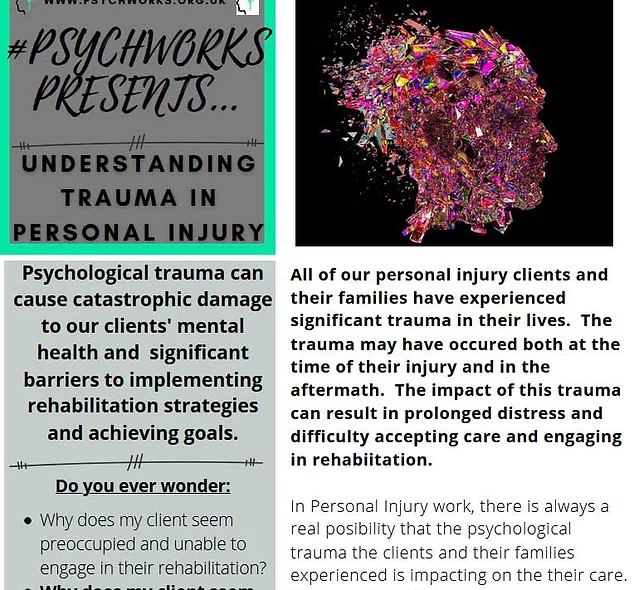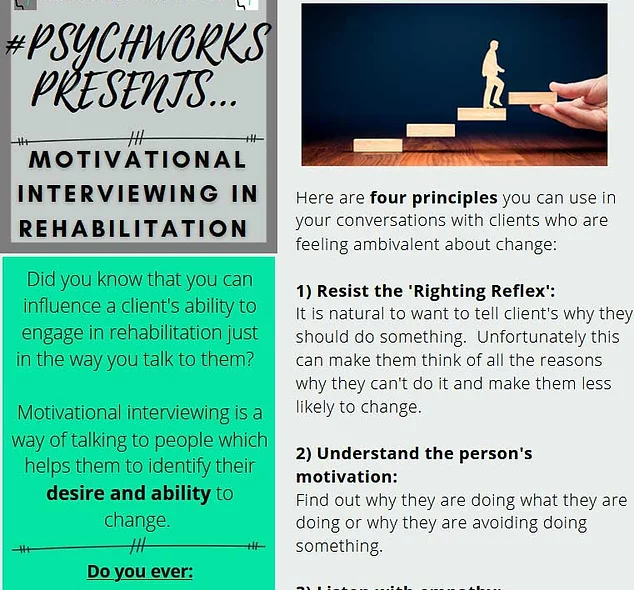Psychological trauma can cause catastrophic damage to our clients’ mental health and significant barriers to implementing rehabilitation strategies and achieving goals.
Do you ever wonder:
Why does my client seem preoccupied and unable to engage in their rehabilitation?
Why does my client seem on edge?
How do I support a family when everyone is so upset about the injury?
How long will it take for this client to recover psychologically?
How should I respond when they talk about the traumatic event?
How can I help?
All of our personal injury clients and their families have experienced significant trauma in their lives. The trauma may have occured both at the time of their injury and in the aftermath. The impact of this trauma can result in prolonged distress and difficulty accepting care and engaging in rehabiitation.
In Personal Injury work, there is always a real posibility that the psychological trauma the clients and their families experienced is impacting on the their care. It is important for everyone involved to understand what trauma looks like and how to help.
At PsychWorks Associates, we want to share our psychological understanding of trauma to help you be more aware of what trauma can look like in both the client and their family, and when to seek further help.
But, why bother thinking about trauma at all?
Read on….
First, here’s some science about why thinking about trauma is worthwhile:
When we go through a traumatic incident the part of our brain that organises thoughts and adds orienting information such as time, place and context goes off-line.
In life-threatening situations our brains concentrate on surviving in the ‘here and now’ and our ‘fight, flight or freeze’ is activated.
When we are in this ‘survival mode’ we don’t process events fully.
Unprocessed trauma can feel like it is still a current threat, even if it was years ago.
If clients feel as if they are still under threat they will find it difficult to engage with their current lives fully and the demands put on them.
Clients need to feel safe before they are able to work on rehabilitation goal
OK, but how do you know if your client/family needs some help with trauma?
Often appearing vacant or preoccupied
Reporting nightmares or flashbacks of the event
Being easily startled or ‘jumpy’
Avoiding actvities that remind them of the trauma
Blocking out thoughts with constant noise /TV/ Radio
Appearing irritable, anxious or angry
Excessive rumination about events
Difficulty sleeping
Struggling to concentrate
Mood swings especially if affecting the stability of the care team
Relationship difficulties
If you feel like your client/family tick many of these boxes, this is totally understandable
How can you address this issue?
Unfortunately, there is no quick fix for managing psychological trauma.
However, some ways to help clients and families through their trauma include:
Get to know the client as the person they were before their injury as well as after.
Noticing people, situations and objects that help the client to feel safe and using these to help soothe the clients during difficult meetings.
Encouraging family members to seek psychological support for their trauma. If the client’s network do not feel safe, they will not be able to help the client to feel safe.




